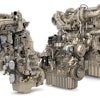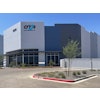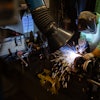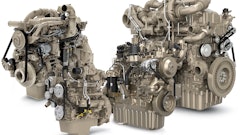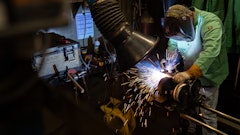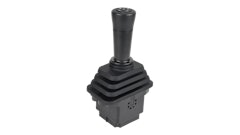Considering the growth in technology, telecommunication, utilities and construction in the U.S. and the increasing need to bury fiber optics, electrical lines and pipes, the launch of a new Kansas Institute of Underground Technology couldn’t come at a better time. As a separate branch of the North Central Kansas Technical College (NCKTC), the new institute is the only one of its kind in the nation to offer professional and program certificate training in the skills of underground construction.
The initial focus of the institute will be on directional drilling, locator training and fluid mixing, says Clark Coco president of NCKTC. However, we hope to add additional courses in the future to include electronic guidance, pipe bursting and damage prevention.
According to Coco, the Kansas Institute of Underground Technology was established with assistance from a grant by the Kansas Department of Commerce, North Central Kansas Community Network, Inc. as a funding source through the Rural Business Development Tax Credit program of the Kansas Department of Commerce and in-kind support from Ditch Witch of Kansas in the form of training support, equipment and simulation programs. In the meantime, Coco says the training will be based on the Best Practices Guide by the Common Ground Alliance, a member-driven association dedicated to ensuring public safety, environmental protection and integrity of services by promoting effective damage prevention practices.
Although the initial trainings will take place on the NCKTC Beloit campus, Coco says the plans include making the training available to interested businesses, industries and municipalities for on-site training, as well. Specific classes will focus on locating existing lines and obstructions, use of equipment, fluid mixing and horizontal drilling with the course culminating in a hands-on challenge.
"The college already owns an 80-acre area we call the 'playground', which is used for other college training like our heavy equipment operation curriculum," Coco says. "So, we intend to use that area for directional drilling training certification."
In essence, students will literally practice "mud mixing" - the slang term for mixing the correct type and amount of fluid lubricant required for different types of substrate (rock, soft earth, compacted soil, etc.) - as well as the appropriate drilling techniques. At the end of the course, students will go through a challenge course on the "playground" that requires them to navigate through a course laden with buried obstacles like existing water lines, old sewer lines, high-pressure gas lines, electrical and fiber optic cable. Upon successful completion of the training students will earn a certificate of completion related to the specific trained skills.
"As it is now, most industries have to invest in training their own employees by partnering new employees with seasoned veterans who can train them on the job" Coco explains. "Unfortunately, there is no consistency on the quality of safety and technical training that employees receive. We think this school will not only give the students a leg up on finding a job, but provide the industry with safer and better-trained workers, while saving utilities and municipality's money on training expenses."

